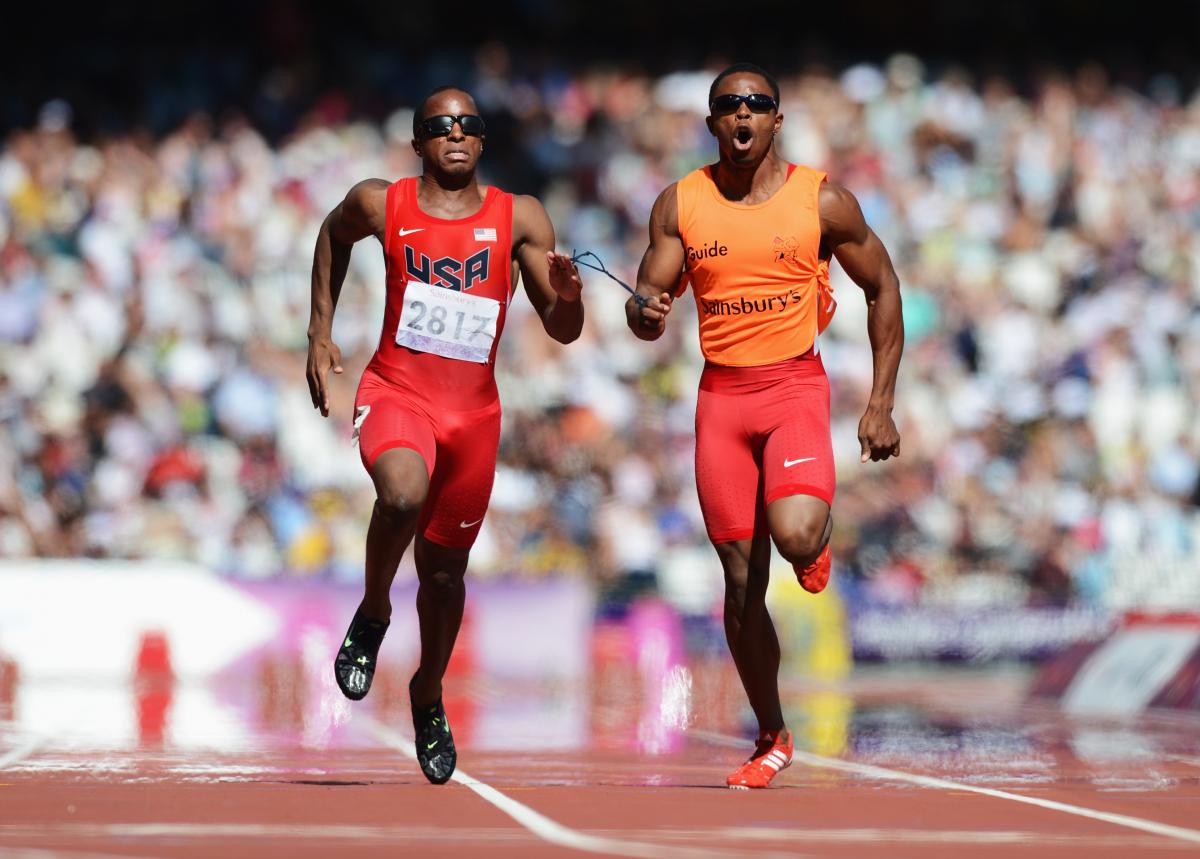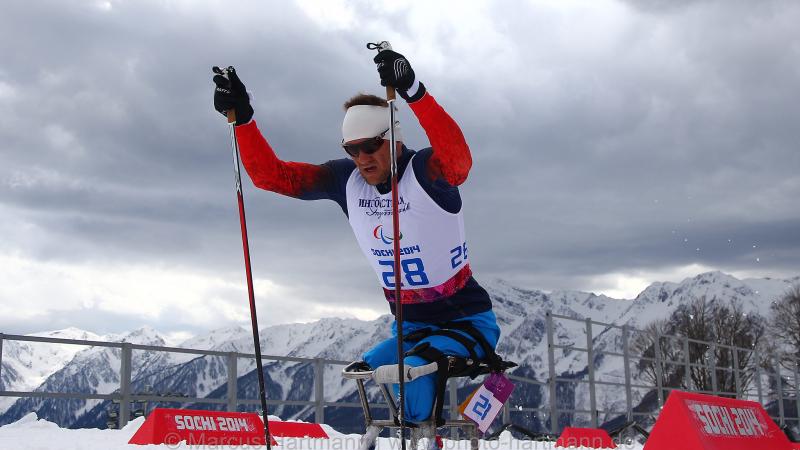ECAC to add sports opportunities for para-athletes in leagues and championships
Students with an impairment attending an ECAC member university or college will get the opportunity to take part in leagues and championships. 23 Jan 2015
David Brown and Rolland Slade (guide) of the United States compete in the Men's 100m at the London 2012 Paralympic Games
For the first time in history, a College Athletic Conference in the USA will add sports opportunities for para-athletes to its leagues and championships.
The Eastern College Athletic Conference (ECAC) Board of Directors adopted an inclusive sport strategy that will provide new intercollegiate athletic opportunities for student athletes with an impairment attending ECAC member colleges and universities.
By taking this pioneering action, the ECAC becomes the first National Collegiate Athletic Association (NCAA) sanctioned conference to provide a range of options for students with an impairment to realise their dreams of competing as intercollegiate varsity athletes.
“The ECAC is proud to promote and provide opportunities to potentially thousands of student-athletes with disabilities who attend ECAC member institutions,” said ECAC President and CEO Dr. Kevin T. McGinniss.
“This historic action systematically includes student-athletes with disabilities in intercollegiate sports for the first time in any NCAA Division. I believe this action will allow many more students, including wounded veterans returning to college, to experience the benefits of competitive intercollegiate sports.”
This strategy includes providing reasonable accommodations in existing events and adding adaptive-specific events to existing ECAC Championship sports such as track and field, swimming, rowing, and tennis.
Over the coming few years, the ECAC also aspires to add new leagues and championships for adaptive team sports such as wheelchair basketball, ice sledge hockey, goalball and sitting volleyball. To help insure the success of this strategy, the ECAC will provide all appropriate and necessary governance, administrative, operations, and sport technical support.
The ECAC Board’s action culminated after a year of planning and discussions led by Dr. Ted Fay, who is a sport management professor at SUNY Cortland and a Paralympic expert, as well as an ECAC Senior Advisor on Inclusive Sport. He engaged former and current para-athletes, coaches, intercollegiate sport administrators and athletic directors, and key officials from disability sport organisations and national sport governing bodies in helping to design this strategy.
Work on this initiative will begin immediately with the first results anticipated to be seen in the 2015-16 academic year.
The ECAC is the largest NCAA conference with currently over 300 members in Divisions I, II and III, from Maine to South Carolina, and westerly to Missouri. At the conclusion of the 2014-15 academic year, the ECAC will host nearly 100 championships in 32 men's and women's sports as the sponsors of over 5,800 varsity teams and 111,000 male and female athletes. For more information, visit www.ecacsports.com.

 Facebook
Facebook
 Instagram
Instagram
 Twitter
Twitter
 Youtube
Youtube
 TikTok
TikTok
 Newsletter Subscribe
Newsletter Subscribe





